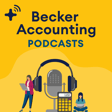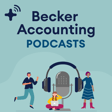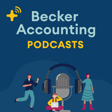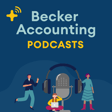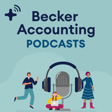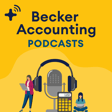
Tax News Now Ep. 4 - Tax Topics with Daniel Moore
Mark Gallegos, Tax Partner at Porte Brown, and his guest delve into the leading tax topics each month. Gain insights from their expertise on the current tax landscape, with 2025 looking like a pivotal year for expiring tax provisions and potentially a new tax policy landscape. Recognizing the many uncertainties tax professionals face this year, Mark and his guests emphasize the opportunities to strengthen client relationships and drive future revenue for tax practitioners.
Earn CPE by listening to this podcast through a Becker Prime CPE subscription.
Listen to this episode through your Becker LMS platform to complete practice questions, pass the final exam, and earn CPE credit.
Already a Becker Prime CPE customer? Login here.
Have access to Becker CPE through your employer? Earn CPE credit for this podcast however you consume Becker CPE, either through your company’s LMS or via the Becker platform. Not sure where to log in? Check with your CPE admin.
Learn more about CPE Podcasts from Becker: https://www.becker.com/cpe/becker-podcasts
